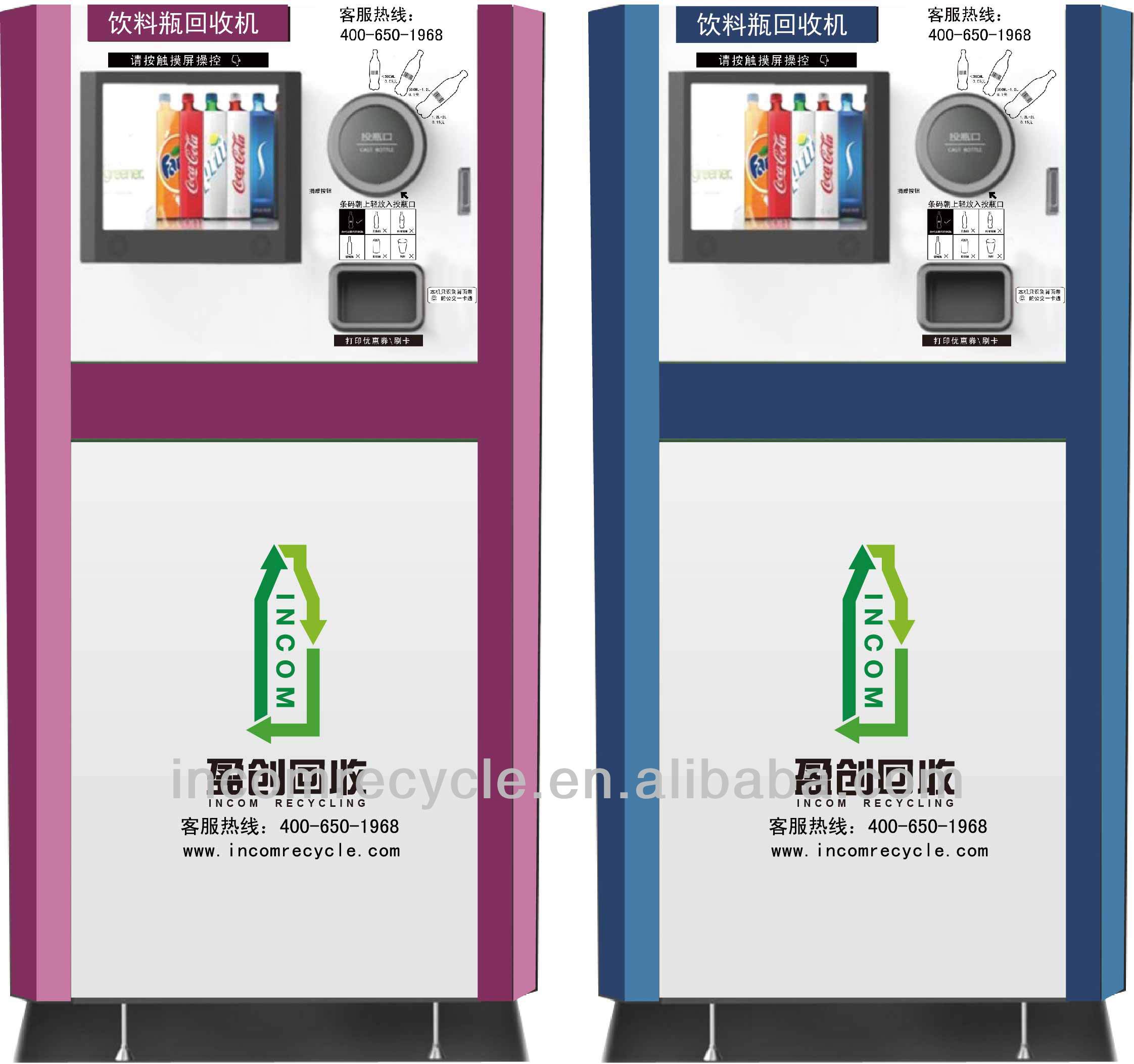What if a recycling machine could pay you for your plastic bottles with the help of a smartphone app? What if the app could arrange for the collection of the materials?
Well, you’d have a pretty good deal there then, we fancy. This is becoming a reality in Beijing, where the current system involves private recyclable scrap collectors navigating the city streets and buying materials from private entities. The Beijing business installing recycling machines that pay you is ‘Incom Resources Recovery Recycling Co. Ltd’, an enterprise started by three business school classmates in 2008. Whilst the idea is not original, the potential for success is…
Because of the lack of government input into municipal recycling, the entrepreneurs are trying to bring recycling into the modern day, and make a profit while doing so. They also think their idea will inherently bring more regulation to an industry that regularly struggles with contamination.
The company manufactures recycling machines that are known as ‘reverse vending machines’, which are installed in sensibly selected places. The material that enters the machines is then collected and sent to approved recycling facilities that meet necessary standards.
The PET material that the bottles are made from is turned into high quality pellets that are sold into reproduction, with Coca Cola one of the companies who purchase their material.
.png)
Here is a statement from Deputy General Manager Liu Xuesong “As we started out, we found the bottleneck. We just can’t get enough raw materials. Our parent factory has the capacity to process 50,000 tons of PET bottles a year, but the facility wasn’t working for more than a half of the year. We didn’t have enough raw materials, and we couldn’t purchase enough.” The 50,000 figure represents around a quarter of the PET bottles used and disposed of in Beijing each year.
The idea of the ‘smart’ recycling machines was to source more material, with competition for plastic being incredibly high due to the cargo-tricycle recyclers. Liu and her co-founders, Yang Guangze and Chang Tao, who are graduates of the China Europe International Business School’s EMBA program, have seemingly been quite successful.
The spaces that were selected for the recycling machines were those that could not be accessed by general scrap collectors, and include places like airports, subway stations, hospitals and schools. A government subsidy allowed them to develop and manufacture their own machines, in opposed to buying them from another business.
The first four machines were successful and allowed the team to develop more. Since 2012, there have been more than 1,300 more installed in Beijing and continuous upgrades now put the recycling machines into their 5th generation.
.png)
150,000 people are using the machines, just a fraction of the 11 million population.
The machines were well received by the media and by people keen to recycle. They were also well received by the pockets of those recycling, with plastic prices paying out double that of ordinary scrap collectors. The bottles pay about 1p each, which may not seem much, but can add up, and with the cost of living difference, can be very helpful.
The recycling machines are growing even more popular, and it can be imagined that the team could one day force a monopoly of recycling machines in the city. Targets for expansion are 3,500 machines by January 2016 and 5,000 by December 2016. Whilst it all started in Beijing, machines are being installed in Guangdong, Chongqing, Shanxi and Shandong.
The smart recycling machines are capturing vast amounts of data, and they state that between the first machine’s installation in 2012 and early July 2015, over 7 million bottles have been recycled through them. People are using a mixture of smart phones and smart cards to collect their payments.
Businesses who advertise with them on the machines become privy to the brands that are being recycled, and where, giving them important analytical information. Even the government receive free data about recycling. All of this makes them a very attractive company to do business with.

They’re looking to target a section of the market that is yet to boom, the integrated recycling system…
Essentially this means that there is no single business collecting, sorting, cleaning and reprocessing the plastic. There are either scrap merchants or recycling factories. The team plan to bridge that gap and reduce their costs and improve their profits by recycling their own material, potentially bringing huge rewards.
With the installation of their own facilities, they would then enter markets other than plastic, including paper, glass, metal and electronics. Before that happens, they will be testing a new service via their smartphone app that alerts a nearby scrap collector to come and pick up the recyclable material, from people’s homes.
“That will bring us the large amounts of the raw materials that we need. Recycling machines should help collect one part and door-to-door service another part, so I estimate that the [total] amount will be quite OK by 2016,” Liu said.
The team have set out to do good environmental work from day one, and they even have plans to reduce the carbon footprint of their recycling by turning their own recycled plastic into Japanese designed luxury recycled stationery! Incredible stuff.


